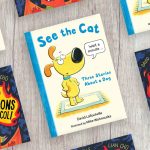By the time Gordon Korman graduated from college, he was supporting himself writing middle grade novels. Now, decades later, Korman continues to devote his career to creating books for young readers, and he recently reached a notable landmark: the publication of his 100th book, The Fort (Scholastic, 2022). In the story, a group of middle school friends stumble upon a hidden bomb shelter that not only serves as a time capsule from an earlier period of history, but also leads them to important discoveries about the nature of their friendship. As the LIT Lessons blog says of the title, “The Fort is a shining example of why Korman is one of the best middle grade authors writing today. Korman’s works are prolific in classrooms across the world…. They are fan-favorites of students and educators alike.”
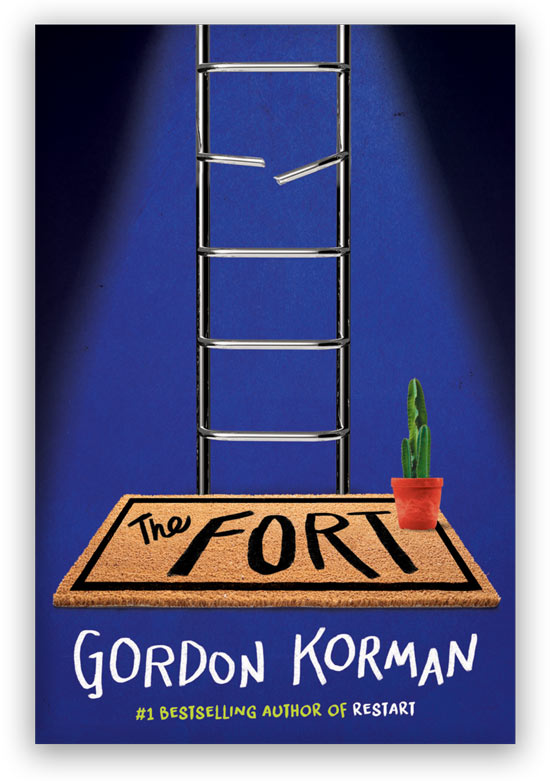
Here, Korman talks with Lisa Bullard about marking this significant publication milestone, how his writing has (and hasn’t) changed over time, and some of the other books that have been important markers during his illustrious career.
Congratulations on publishing book 100! Did you plan ahead for this moment, or did it sneak up on you?
Initially, I didn’t think there would be anything special about book 100. It was actually the kids at my school visits who changed my mind on the subject. As soon as my book tally reached the nineties, they began peppering me with questions about my plans for number 100: Would there be a party? A celebration? Skywriting? Fireworks? That’s when it began to sink in that the milestone was pretty special. I wish I could time-travel back to my seventh-grade English class and whisper in the ear of twelve-year-old me—working on book 1—that one day we’d be publishing book 100. That would be pretty mind-blowing for both of us.
I wish I could time-travel back to my seventh-grade English class and whisper in the ear of twelve-year-old me—working on book 1—that one day we’d be publishing book 100.”
I know you’ve told the story of book 1 many times, but it’s too good to pass up the opportunity to have you repeat it for an audience of educators. How did that first book come about?
When I was in seventh grade, thanks to some scheduling issues, the track and field coach had to teach our English class, and he gave us carte blanche on creative writing for almost five months. The result was This Can’t Be Happening at Macdonald Hall (Scholastic, reissue edition 2011, originally published in 1978), my first novel. As I happened to be class monitor for Scholastic Book Clubs at the time, I submitted my manuscript to the address on the book order forms. I’m not sure what fluke, or combination of flukes, brought precisely the right combination of eyes on my book at precisely the right time, but a few days after my thirteenth birthday, I signed my first contract. And slightly more than a year later, I was a published author.
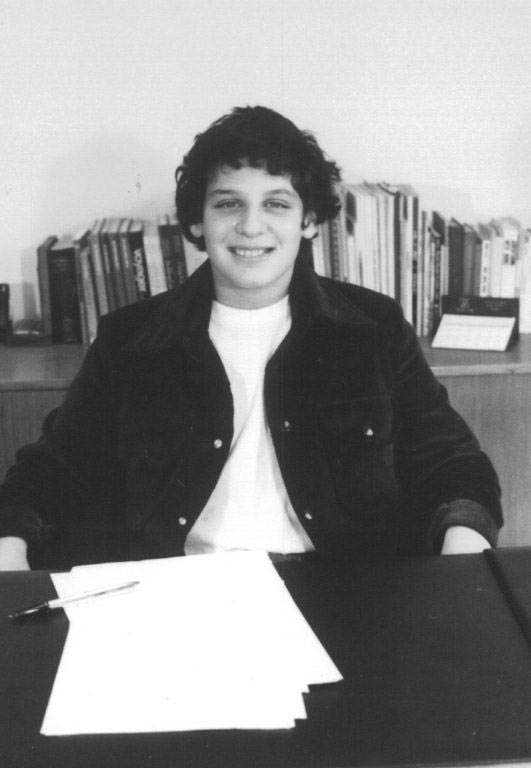
Do you know whether the teacher/coach who ended up giving you that life-changing assignment ever learned about your success?
As a high school freshman, I returned to middle school to present Mr. Hamilton with a copy of the book, which is dedicated to him. I haven’t stayed in touch with him since then, although a number of years back, I heard from his daughter—then the mom of three middle grade readers. She told me that her dad is retired now but has been following my career since it started in his classroom.
The Fort seems like the perfect title to land in your 100th-book spot. At its heart it celebrates the enormous power of friendship in young people’s lives, one of the strongest recurring themes in your books. Was it the right title for number 100?
I’m not sure whether I love this question or hate it since it already contains my best answer, but yes! The Fort is a fitting book 100 exactly because it’s such a great showcase for the power of friendship. Apparently, I’m not very self-aware of my themes while I’m writing. I usually learn those from my readers once the book has been published. Decades ago, a fifth-grade class recorded a Macdonald Hall school song based on my earliest books. I’ll never forget this lyric: “Come as a student. Leave as a friend. A place where friendships never end.” Those fifth graders could just as easily have been singing about the characters of The Fort. The main difference is that The Fort deals with tough issues that I never would have tackled as a (very) young writer. But the heart of my books through these four and a half decades has always been friendship.
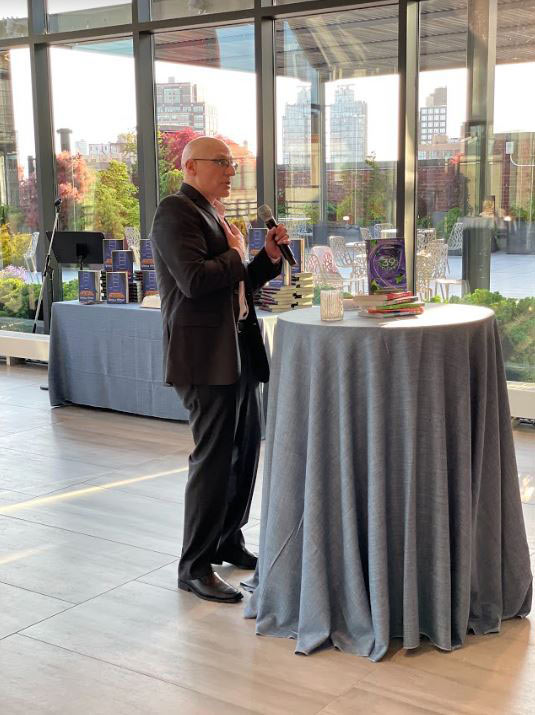
The heart of my books through these four and a half decades has always been friendship.”
I imagine that one of the main reasons young readers are so drawn to your books is that you have such a knack for bringing your characters to life and creating authentic voices for them. Often, as in The Fort, multiple authentic voices are contained in one story. What do you think it is that allows you to inhabit your preteen/young teen characters so believably?
Back in the day, people used to say it was obviously because I was so close in age to my characters and readers. But I’m 59 now, and I think I’m as locked in as I ever was. Some people just remember childhood very clearly—the frustrations, the triumphs, the humiliations, the gut-clenching desire to be independent, freer, older. It has nothing to do with how close you are to childhood chronologically. My mom is in her eighties, and she still grumbles when the back-to-school ads appear in late summer. Never mind that she’s not going back to school and hasn’t since the 1950s. I know thirteen-year-olds who’ve already forgotten how it feels to be twelve. Yet some people never lose that connection to being a kid.
I know thirteen-year-olds who’ve already forgotten how it feels to be twelve. Yet some people never lose that connection to being a kid.”
Humor is another hallmark of your writing. Does humor come naturally to you?
When I was a teenage author, I was obsessed with making kids laugh out loud. I could be endlessly inventive when it came to cooking up comic possibilities. I was almost too eager to be hilarious. I was good at bringing out belly laughs, but sometimes I think I did it to the detriment of my story. Once you’ve compromised willing suspension of disbelief, it’s very hard to win it back. One of the things I love about my later books is I’m not so hung up on packing comedy into every sentence and line of dialogue. Nowadays, I rely more on being honest with my readers and try to let the humor take care of itself. As a result, the humor that’s there hits harder and is more emotionally resonant.
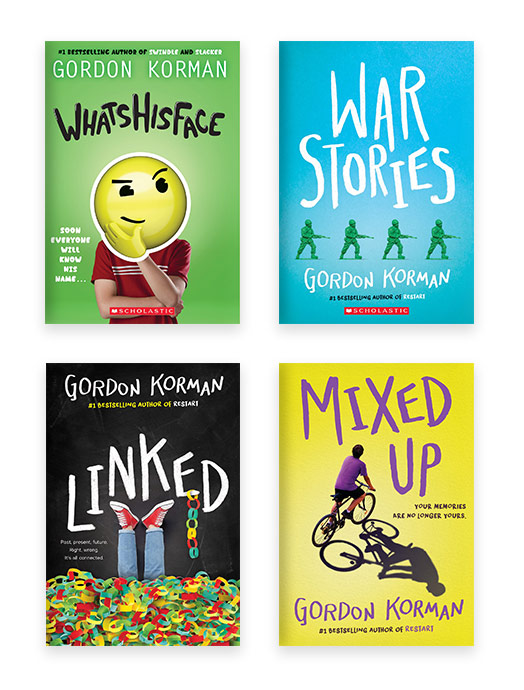
Which of your books made the biggest difference in your life?
Although I was already “Canada’s teenage writing sensation,” my first series to make a big splash in America was the Island trilogy. That caught me by surprise since it was also a major shifting of gears in my writing style—my first change of direction away from humor toward adventure and suspense.
Which of your books are you most proud of?
I have to go with The Fort here. It would have been so easy to turn that story into a comedic romp, but I went with the instinct that it was more important to do justice to the characters, their friendship, and the life issues they’re dealing with. At the same time, I wanted a page-turner, not a downer. It was a tough tightrope to walk, and I’m beyond thrilled with the finished product.
Which of your books is the most fun to discuss with young readers?
I love sharing the origin of Slacker (Scholastic, 2016): my eldest son. (He wasn’t so much a classic slacker as the video-game-addicted, couch-potato kind.)
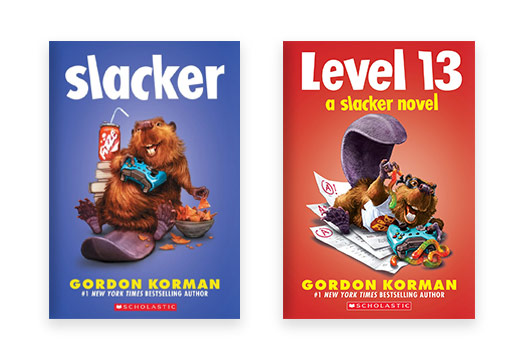
Which of your books was the hardest to write?
The Masterminds trilogy is about kids who discover their entire lives are a twisted experiment. How do I tell the story from the perspective of narrators who don’t really understand what’s happening to them? I was pretty relieved when I reached the stage where the truth was out, and I no longer had to devise ways to reveal key information to readers that the narrators themselves couldn’t know.
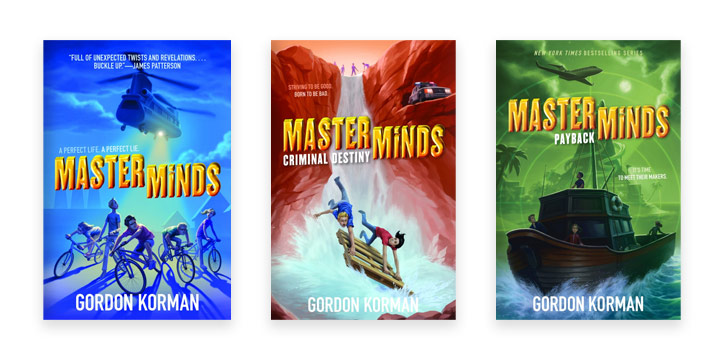
Which of your books most surprised you in its finished form?
Schooled (Little, Brown, 2007). I wrote Capricorn Anderson as completely clueless. Homeschooled in near-total isolation on the hippie commune his grandmother formed in 1967, he had no idea how the real world worked. But when I read the book over, he had changed somehow—almost as if Cap understood more than he let on and was messing with us a little.
Which of your books has had the most surprising reception from readers?
Fan reaction to the 39 Clues books has stunned all the writers who have worked on the series. And I continue to be thrilled and gratified at the way kids have embraced Restart’s (Scholastic, 2017) message of change and redemption.
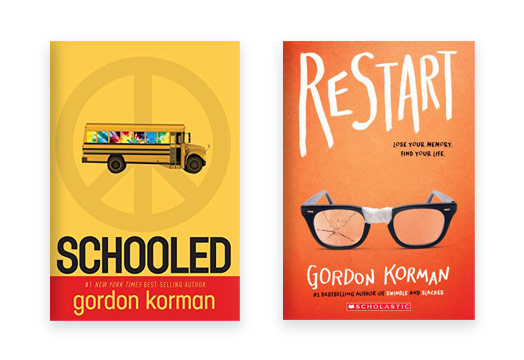
Do you have any favorite stories about the impact of your books on the lives of your fans?
My “old” fans have been emerging for quite a while—adults who read me as kids and are now re-experiencing my books as parents and teachers. I’ve even heard a couple of stories of grandparents who read my early books back in the day. (That makes me feel ancient, but I love the idea that I’ve become a multigenerational thing.) Social media has been a big part of the emergence of the “old” fans, and the Readers Forum of my website is sometimes a turf war between young and old over whether or not new books like The Fort measure up to the “classics.”
The Readers Forum of my website is sometimes a turf war between young and old over whether or not new books like The Fort measure up to the ‘classics.’”
I know you’re already writing your way to title number 200. What would you like to share with fans about your next book?
Book 101—The Superteacher Project (Balzer + Bray, 2023)—comes out January 10th. Something’s definitely up with Mr. Aidact. He’s unstumpable at trivia, knows every song lyric ever recorded, and can snatch a hurtling spitball out of the air with two fingers. Two class clowns set out to solve the mystery of the new teacher before he shuts down their rule-wrecking careers for good.
What are the best ways for readers to connect with you or to follow you on social media?
You can find me on Facebook and I’m @gordonkorman on Twitter and Instagram. But the best place to reach me is via the Readers Forum of my website, www.gordonkorman.com.
Is there anything else that you’d like to add?
Just that I can scarcely believe I’m still writing for kids all these decades after my seventh-grade English class. Thanks to my readers—young and old—for making this dream a reality!





